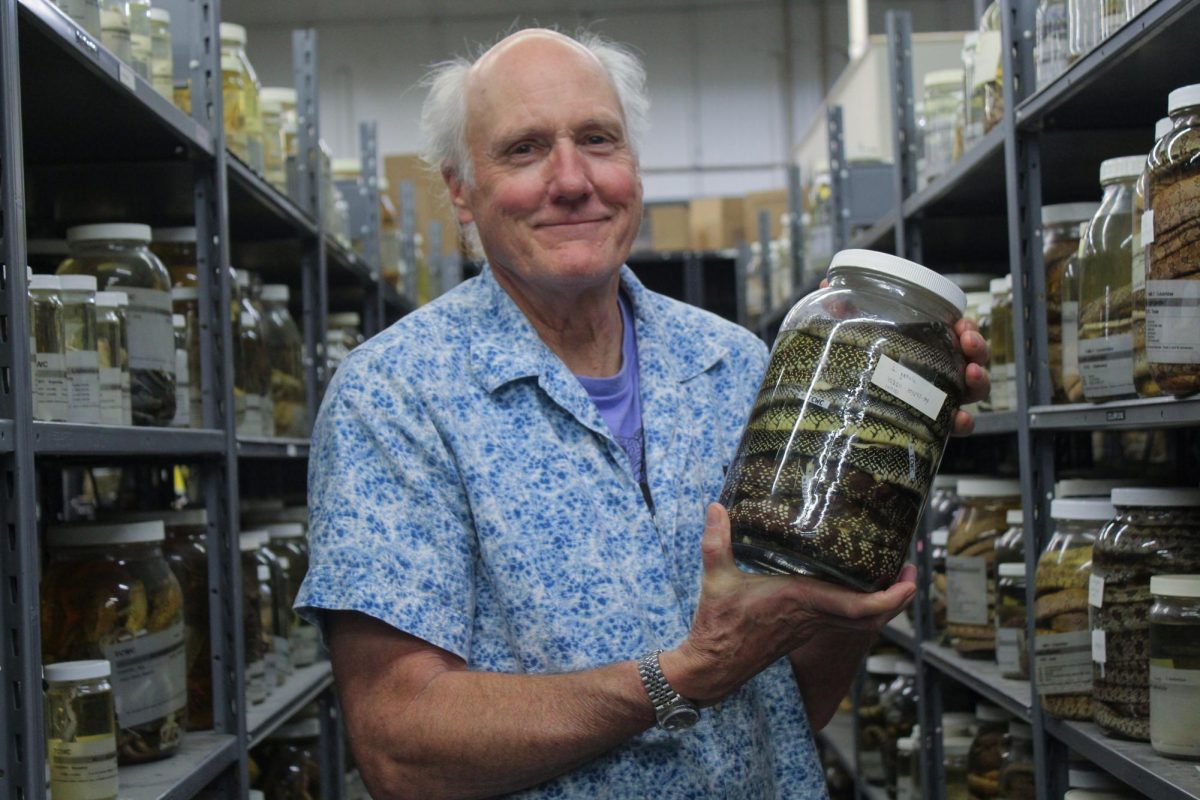Texas is on its way to becoming a nationwide leader by being the first state to collectively embrace smart solutions in automated vehicle technologies.
The U.S. Department of Transportation wanted to jump start “smart cities” by proposing a challenge where they asked cities from across the United States to propose how they would spend a grant of $40 million throughout their communities. Seventy-eight proposals were received from across the country, ending with seven finalists, including Austin. However, Columbus, Ohio won the smart city challenge.
“Austin was a finalist; they didn’t get the funding but they put a lot of hard work and thought into the proposal,” said Texas A&M Transportation Institute assistant agency director Christopher Poe. “Texas wanted to keep the momentum going that Austin created, so the Texas Department of Transportation invited any Texas city that had any thought of being a smart city to come to the summit. They had eight teams come from across Texas including; Bryan-College Station, Dallas, Fort Worth, Houston, Austin, El Paso, Corpus Christi and San Antonio.”
The 2-day summit was spent discussing how each city’s ideas would introduce more cities into those communities, becoming the foundation for the Smart Texas Initiative.
“That is why we are at the forefront,” Poe said. “I don’t know any other state that has organized communities statewide to try to advance this technology. Everybody wants to learn from each other, we aren’t competing with each other. The idea is that we all work together and share emerging technology and try to help everybody meet their goals.”
According to Poe, the Texas A&M Transportation Institute has been working with A&M bus services to integrate a camera system onto one of the bus routes. The system helps the driver to avoid crashes and reports pedestrian-vehicle conflict hotspots back to the A&M bus service.
“I’d feel comfortable knowing they would be in control in cases of drivers feeling fatigued or under the weather. The concept itself would definitely be an interesting experience to be a part of,” said general studies freshman Chloe Shelby.
The benefit of having smart vehicle technology is having the potential to reduce crashes. According to Poe there are about 3,500 Texans killed every year on highways.
“I think the goal that we have is to facilitate and at the same time enable testing research and development in a safe environment that ensures the projects are safe and efficient when they end up on Texas highways,” executive associate agency director William Stockton said. “There are really terrific technologies that will not only significantly improve efficiency and convenience for you and me as vehicle drivers but also everyone’s safety, when vehicles talk to each other.”
Some of the challenges facing smart vehicle technology is the duty of educating the public to make sure they understand the technology and are at ease with it.
“As much as I would want to trust the technology, just like regular cars, smart vehicles are sure to have their own troubles at first,” Shelby said. “I’m positive they will be trustworthy in the future, but as for now the idea of technology being in control over myself in regards to driving makes me hesitant.”
Texas A&M is in a partnership with Texas and Southwest Research Institute in San Antonio to serve as one of ten national proving grounds for smart vehicle type technologies.
“This will enable TTI and Texas A&M to conduct full scale studies of smart vehicle technologies at the RELLIS Campus in Bryan,” Stockton said. “After suitable off-site, full-scale testing then work with the Texas Department of Transportation to do actual on road testing will begin.”
According to Poe, one way to make sure smart vehicle technology is safe is to make sure to use the comprehensive testing technologies before the vehicles ever get out onto a Texas roadway.
“By putting that partnership together, that’s one way to make sure these technologies develop safely,” Poe said.
Another challenge is making sure Texas has the right policies and regulations to support this. By applying the appropriate legislature to manage the smart vehicle technology, it will ease the development and deployment, as well as adapting policies as the technology improves.
“Our legislature is about to go in session and I think the legislatures will be very interested in following this topic,” Poe said.
According to Poe, Texas A&M has made a significant investment in upgrading the RELLIS campus, a facility designated for research and technological development just 15 minutes from the main campus.
“Texas A&M has two automated vehicles now that they are doing some very preliminary offroad testing right now at the RELLIS campus,” Stockton said.
The Texas A&M Transportation Institute headquarters will be moved there. The idea is to bring researchers, students, and industry all together to work on transportation research and development.
“It’s one of the most significant redevelopment of a research and development facility in the country and it’s happening here,” Stockton said. “Chancellor Sharp and Vice Chancellor Kathy Banks are really the driving force behind it.”
Texas adopts “smart” automated vehicle technologies
January 23, 2017
0
Donate to The Battalion
$2065
$5000
Contributed
Our Goal
Your donation will support the student journalists of Texas A&M University - College Station. Your contribution will allow us to purchase equipment and cover our annual website hosting costs, in addition to paying freelance staffers for their work, travel costs for coverage and more!
More to Discover










